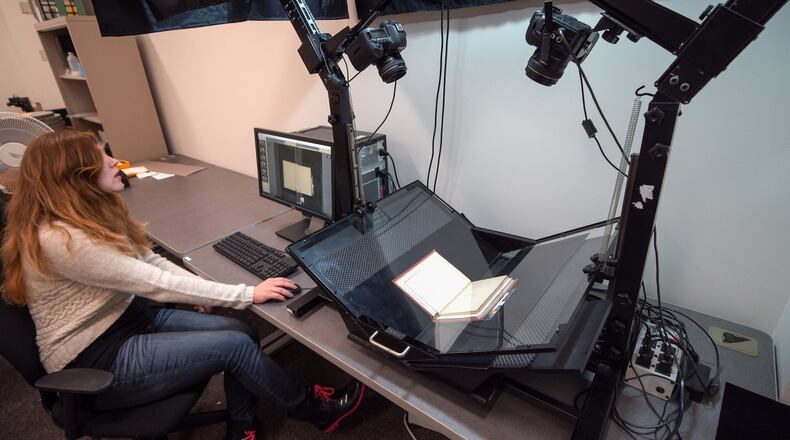Located on the third floor of King Library, Special Collections maintains an extensive collection of university publications available for research and their dream for many years has been to digitize much of it to make those publications more accessible. That began with an application for a grant from the Smith trust, which was provided.
“It has been two years since the inception of the (first) grant,” said Jacqueline Johnson, archivist for the Special Collections Department. “They have been very generous to us. They funded the entire project.”
Communications Specialist Nick Kneer said he is excited about the open access the digitizing project provides.
“Special Collections has an incredible collection of things. This will make them more available,” Kneer said. “It is a connection to the past. It opens up research on all types of activities. You can track how organized sports evolved (as an example).”
The yearbooks and student newspapers are an area of interest for alumni and researchers but the project goes much deeper than just those items, giving insight into life at Western College for Women and Oxford College, both of which Miami took over, as well as the regional campuses created in more recent years.
Catalogs, alumni newsletters, the Miami Report, early bulletins are among the host of publications which will eventually be available online through the Special Collects tab on Miami’s web site.
“It speaks to the diversity and cultural history of Miami University,” Johnson said. “We will reach alumni across the world.”
That will also allow graduates to find themselves in the pages of the yearbooks or other publications, allowing them to print a copy of something they want to keep. Wegner said they will have an image request form online if they want to purchase, for example, a full pdf copy of a yearbook.
Modrow said they are not usually open on Saturdays but do so on big university weekends, such as Alumni Weekend and put out displays of some of the pieces in their collection. They often get requests for a copy of specific pictures or items. This project will facilitate that for alumni who can now access those things at home.
“We are happy to have that out there to connect people to their past,” Modrow said. “These are heavily used materials. We are not digitizing to be digitizing.”
About the Author
